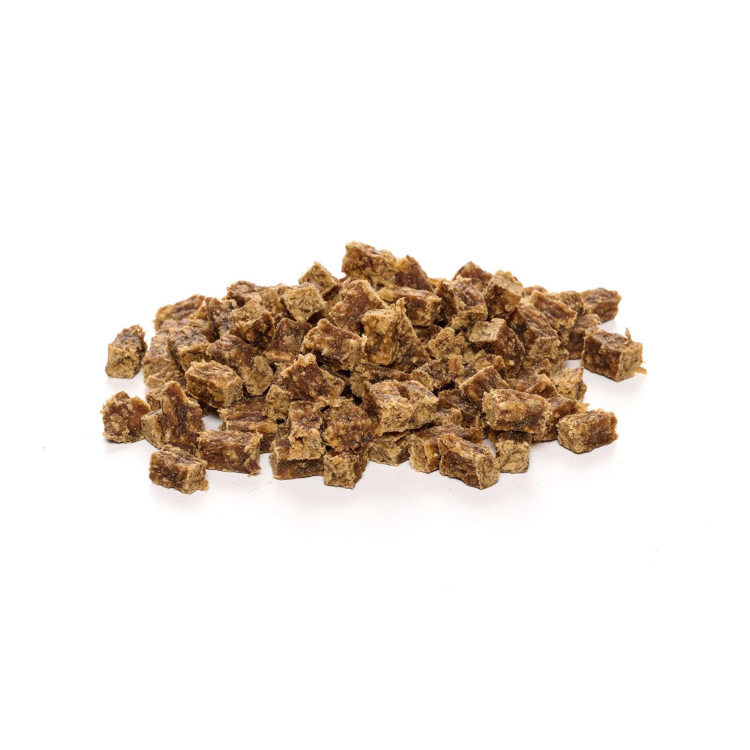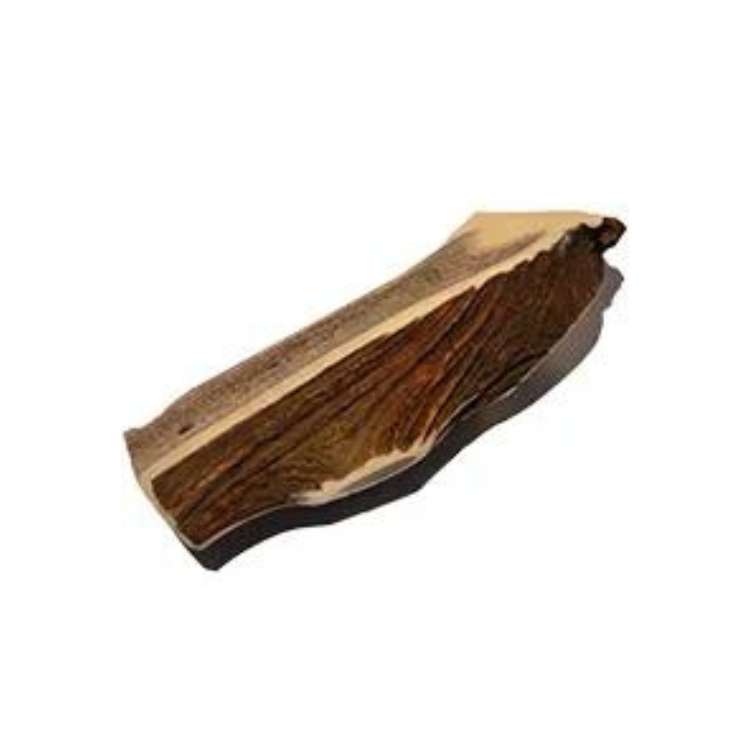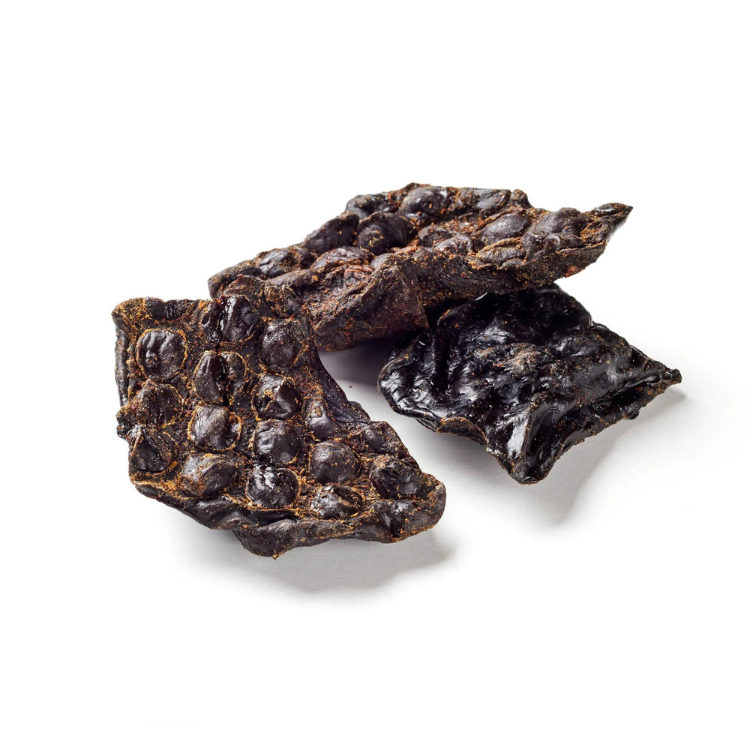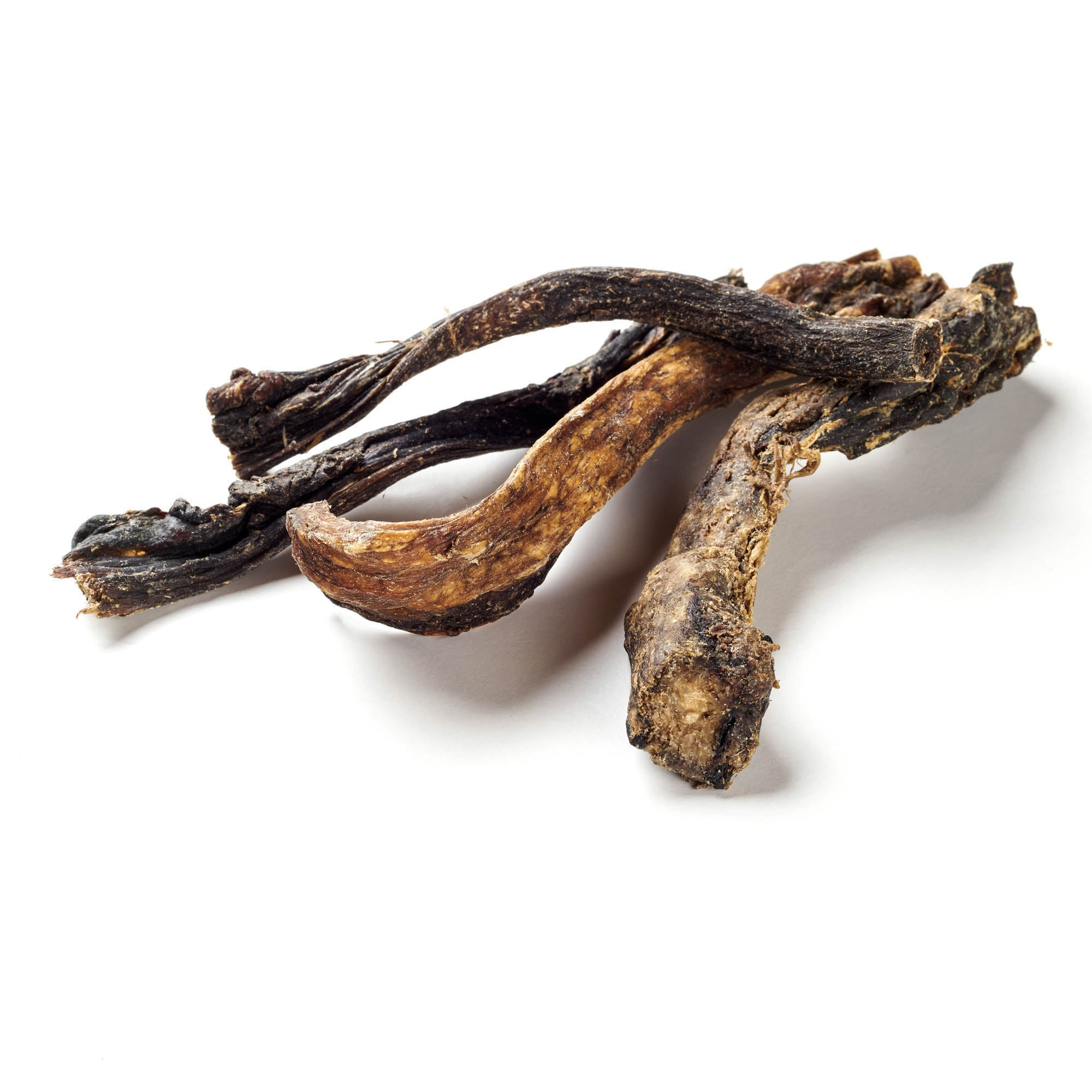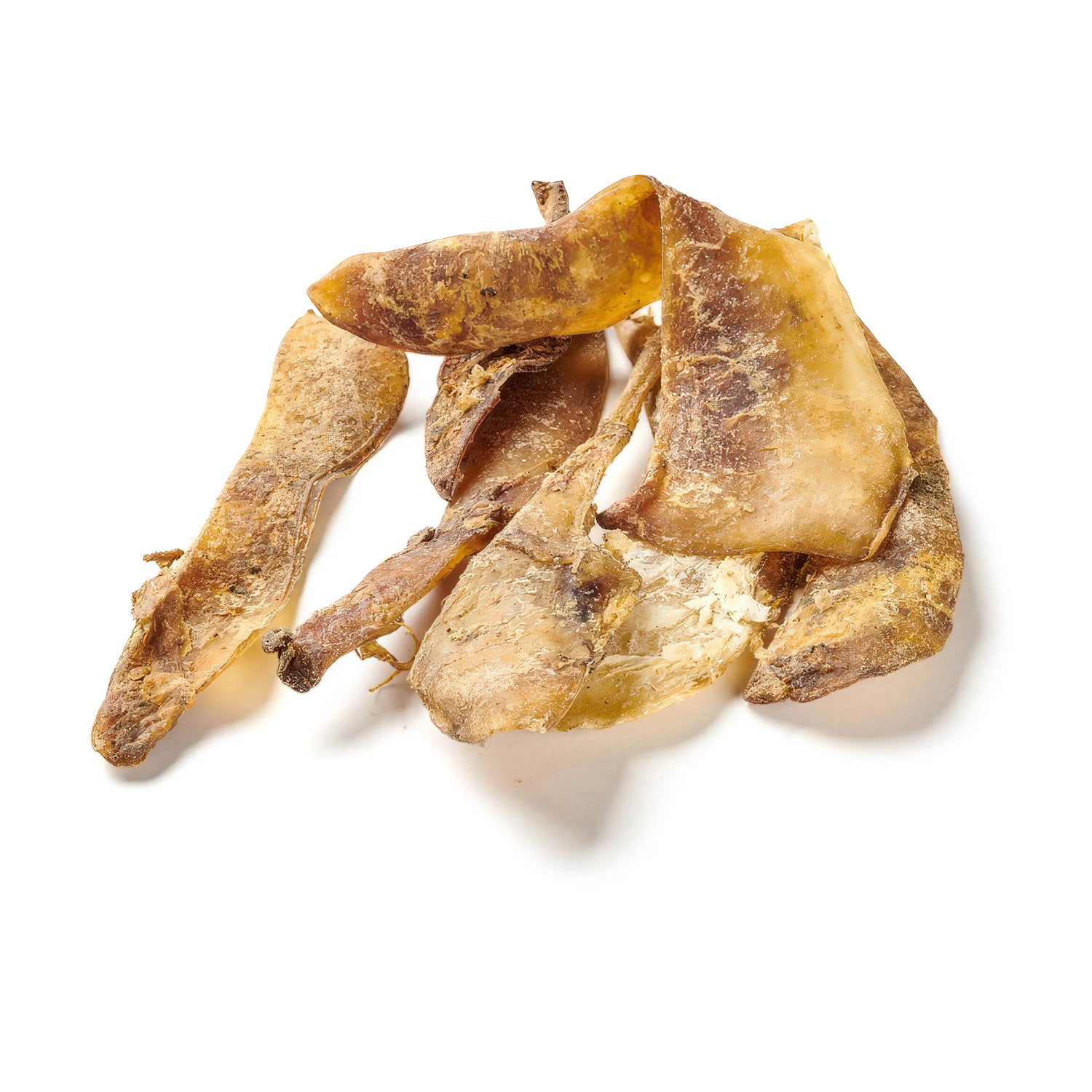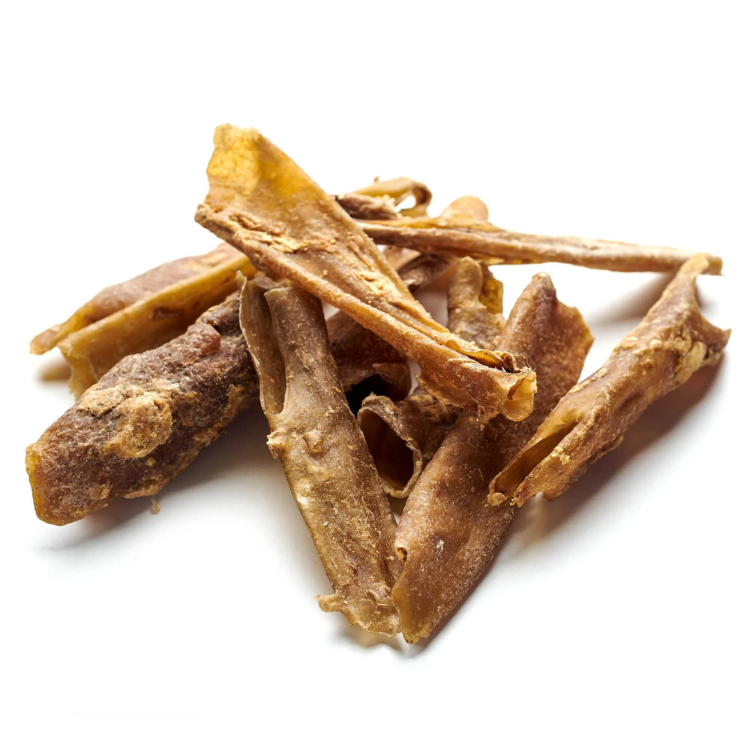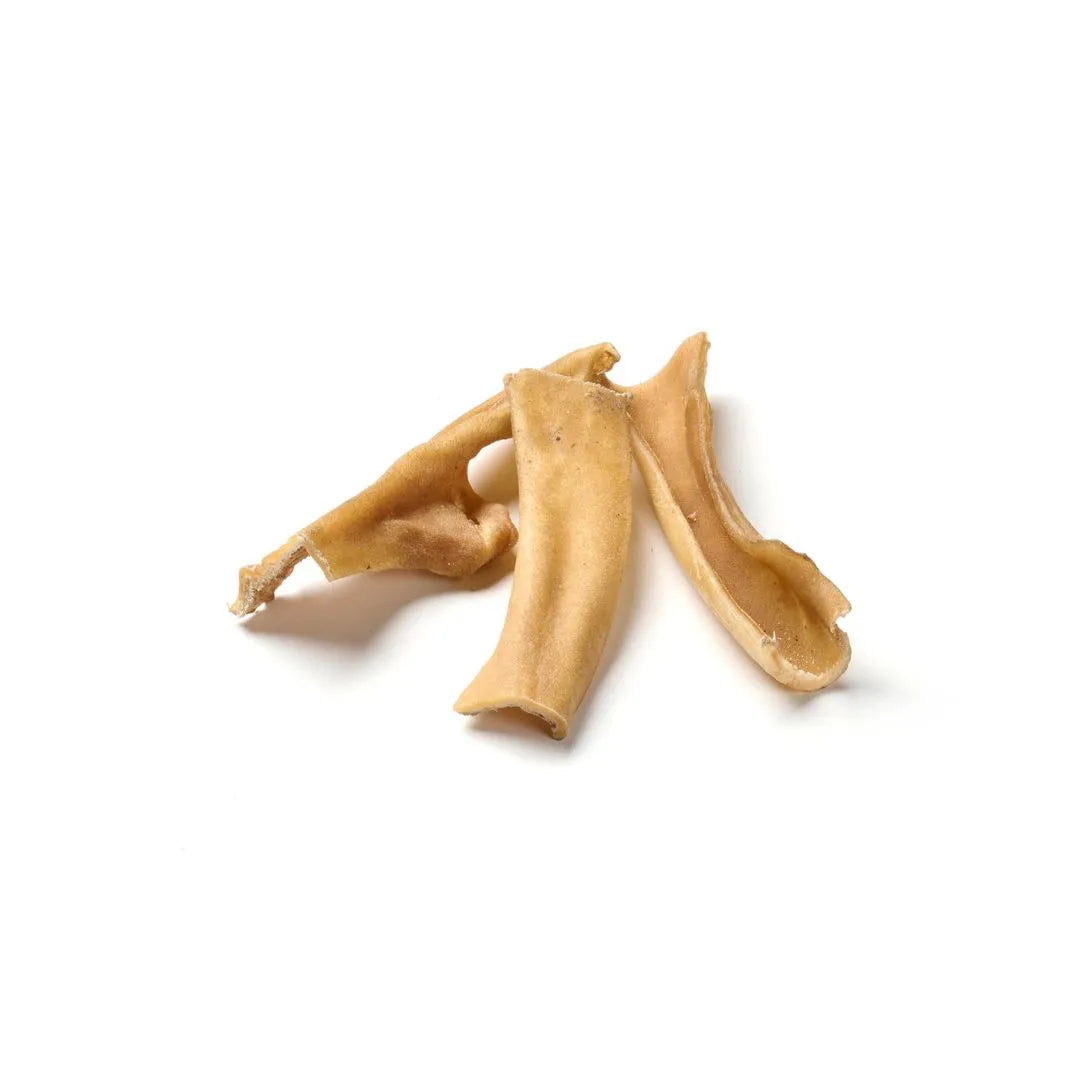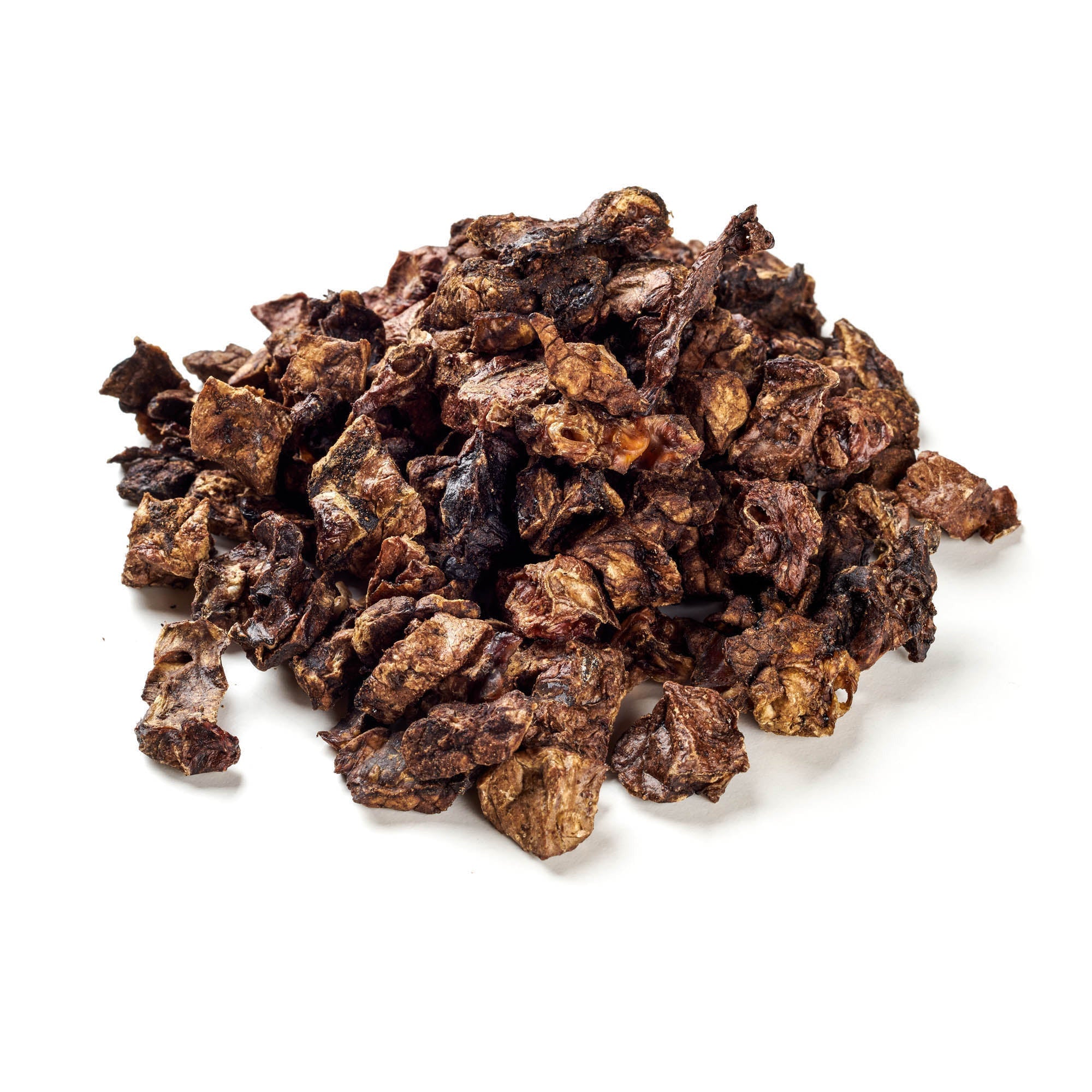
Why do dogs eat grass?
Share
Imagine you are out for a sunny walk in the park with your dog. Suddenly he stops, sniffs the ground curiously and starts nibbling on the lush blades of grass. As a dog owner, you have probably seen this many times and asked yourself: Why is he doing this? Is it just harmless behavior or is there more to it?
These questions are on the minds of many dog lovers and often lead to worried looks and heated discussions among friends. Eating grass seems like an unusual behavior at first glance, but there are fascinating reasons why our dogs turn to the green. Could it be a relic from the wild past of our domesticated four-legged friends? Or perhaps a clever trick to keep their digestion on track? The answers to these questions might surprise you.
Contents: Why do dogs eat grass?
- Reasons why dogs eat grass
- Is eating grass dangerous for dogs?
- When should you take your dog to the vet?
- Preventive action
- Conclusion
Reward your best friend with our dog treats!
Reasons why dogs eat grass
Eating grass is a behavior that dogs inherited from their ancestors, wolves. In the wild, wolves occasionally eat grass to aid their digestion or to get rid of parasites.
Natural instincts
This natural instinct is deeply rooted and remains in our domesticated dogs, so eating grass can be considered a remnant of this ancient behavior. Additionally, dogs sometimes eat grass to supplement roughage or fiber that is lacking in their normal, meat-based diet. These additional nutrients can aid digestion and support overall well-being. If your dog's diet is not balanced, eating grass could be a way for him to make up for these deficiencies.
Taste and enjoyment
Some dogs just seem to like the taste of grass. Nibbling on blades of grass can be a pleasant activity for them and stimulate their senses. It may also be that the grass has a certain texture that dogs like, or that it is a welcome change from their normal diet.
stomach problems
Dogs may eat grass to relieve an upset stomach. The grass may help settle the stomach or induce vomiting, which allows the dog to rid itself of unpleasant substances in the stomach. This is a commonly observed behavior when dogs eat grass and subsequently vomit. It seems that dogs instinctively know that the grass can help them when they are feeling unwell.
Pamper your dog with our delicious chews!
Is eating grass dangerous for dogs?
Grass eating in dogs often raises questions about safety and potential dangers. While eating grass is harmless for most dogs, there are some risks and precautions that should be taken to protect your dog's health.
Harmless grasses
Most grasses that dogs eat are safe and can be consumed without any problems. These grasses pose no threat to the dog's health and may even help aid digestion. However, it is important that the grass is clean and free of contaminants. Dogs should always be supervised to ensure they do not ingest any dangerous plants. If possible, dogs should only eat grass that grows in areas that have not been treated with chemicals.
Possible risks
Eating grass is safe in most cases, but there are a few things you should keep in mind to be on the safe side. Make sure your dog only eats clean and untreated grass. It is also advisable to keep him away from areas where pesticides or fertilizers may have been used, as these chemicals could be harmful to his health.
Another risk is that your dog might eat sharp or tough grasses that could injure his mouth or gastrointestinal tract. To avoid this, make sure your dog chooses soft and safe grasses. Regularly checking the grass in your yard or parks can help ensure there are no potentially dangerous plants growing nearby.
Although the risk is low, you should make sure your dog does not eat near plants that are known to be poisonous. This includes plants like horsetail or ivy. Educate yourself about the plants in your area to make sure your dog does not ingest any poisonous plants.
By taking these simple precautions, you can minimize the risk and ensure that grass-eating remains safe for your dog. This will give you peace of mind and allow your dog to indulge his natural inclination to eat grass without worry.
When should you take your dog to the vet?
There are situations where your dog's grass eating can be a cause for concern. If your dog suddenly starts eating an unusual amount of grass or shows other behavioral changes, this should not be ignored. Watch your dog closely and pay attention to whether there are any other signs of discomfort.
Behavioral changes
If your dog suddenly starts eating more grass than usual or exhibits other unusual behaviors, this could be a sign of health problems. These include changes in their general behavior or activity level. Such changes should be taken seriously and may be a sign that your dog is unwell.
Symptoms
Certain symptoms can indicate that something is wrong. Loud intestinal noises, frequent swallowing and increased eating of grass are typical signs. If these symptoms occur, it is advisable to consult a veterinarian. Other warning signs may include vomiting, diarrhea or loss of appetite . These symptoms can indicate various health problems and can indicate canine diseases that require a veterinary examination.
Long-lasting complaints
If the behavioral changes and symptoms persist over a long period of time and do not improve, a visit to the vet is urgently recommended. Long-term symptoms could indicate serious health problems that require treatment. Early diagnosis and treatment can help prevent major health problems and ensure your dog's well-being.
By paying close attention to your dog's behavior and health and consulting a veterinarian promptly if signs of discomfort appear, you can ensure that any problems are quickly identified and treated. This will help to ensure your dog's long-term health and well-being.
Preventive action
To ensure that grass eating remains safe for your dog, there are some preventative measures and safe alternatives to consider. Through careful monitoring and targeted precautions, you can minimize the risk and provide a safe environment for your dog.
Safe grass sources in the garden
One way to reduce the risk is to create a corner of untreated grass in your yard. Here your dog can safely eat grass without you having to worry about him ingesting harmful substances. Planting cat grass can also be a good alternative. These safe sources of grass can help your dog to follow his natural instincts in a healthy way.
Avoiding poisonous plants
It is important not to have any poisonous plants in the garden that could harm your dog. Find out which plants are dangerous for dogs and remove them from your garden. You should also make sure that your dog does not eat any poisonous plants in parks and public green spaces. Being aware of the environment and the plants that grow there is crucial to protecting your dog from potential dangers.
Be careful in the area
Keep an eye on your dog when you're outdoors and don't let him graze near fields or gardens with unfamiliar plants and possible pesticide contamination. It's important that your dog only eats grass that is safe and untreated. By carefully supervising, you can ensure that your dog doesn't come into contact with dangerous substances.
By implementing these preventative measures, you can minimize the risk and ensure that grass eating remains safe for your dog. With proper caution and a watchful eye, you can allow your dog to exercise his natural instincts without compromising his health.
Conclusion
So grass eating in dogs is a common behavior that is usually harmless. Dogs inherit this behavior from their ancestors, the wolves, and it can have both natural instincts and nutritional reasons. Grass can be a source of roughage and fiber for dogs, which aids their digestion and promotes their general well-being. Some dogs also eat grass simply for taste and enjoyment or to relieve stomach problems.
While eating grass is harmless for most dogs, there are still risks that should be considered. Make sure your dog only eats clean and untreated grass to avoid ingesting harmful substances. Keep your dog away from dangerous plants and regularly check the condition of the grass in your yard or parks. If you notice any unusual behavioral changes or symptoms such as loud bowel noises, frequent swallowing, or persistent discomfort, it is important to consult a veterinarian. With the right preventative measures and careful supervision, you can ensure that grass-eating remains safe for your dog. Create safe grass sources in your yard, avoid poisonous plants, and keep your dog away from potentially dangerous areas. By following these simple steps, you can allow your dog to exercise his natural instincts without putting his health at risk. This will keep your four-legged friend healthy and happy while he can satisfy his need to eat grass.
Discover our selection of premium dog chews!

